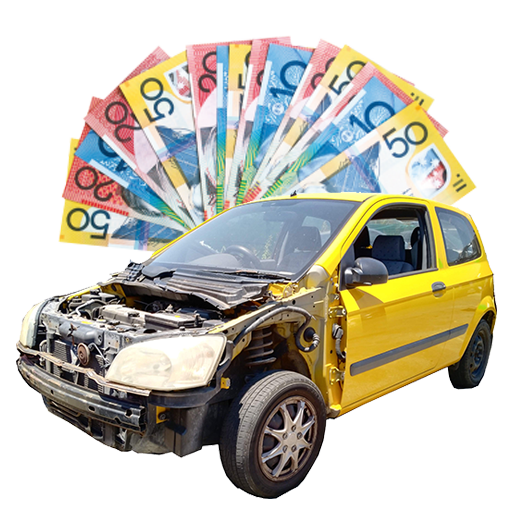So, you're staring at that old car in the driveway and wondering, "Now what?" The good news is, finding a great local automotive recycler is usually pretty straightforward. It often comes down to a quick online search and a couple of phone calls. The real trick is knowing what to have on hand and how to spot a genuinely professional service to make sure you get the best possible price.
How to Find Automotive Recycling Near You Fast
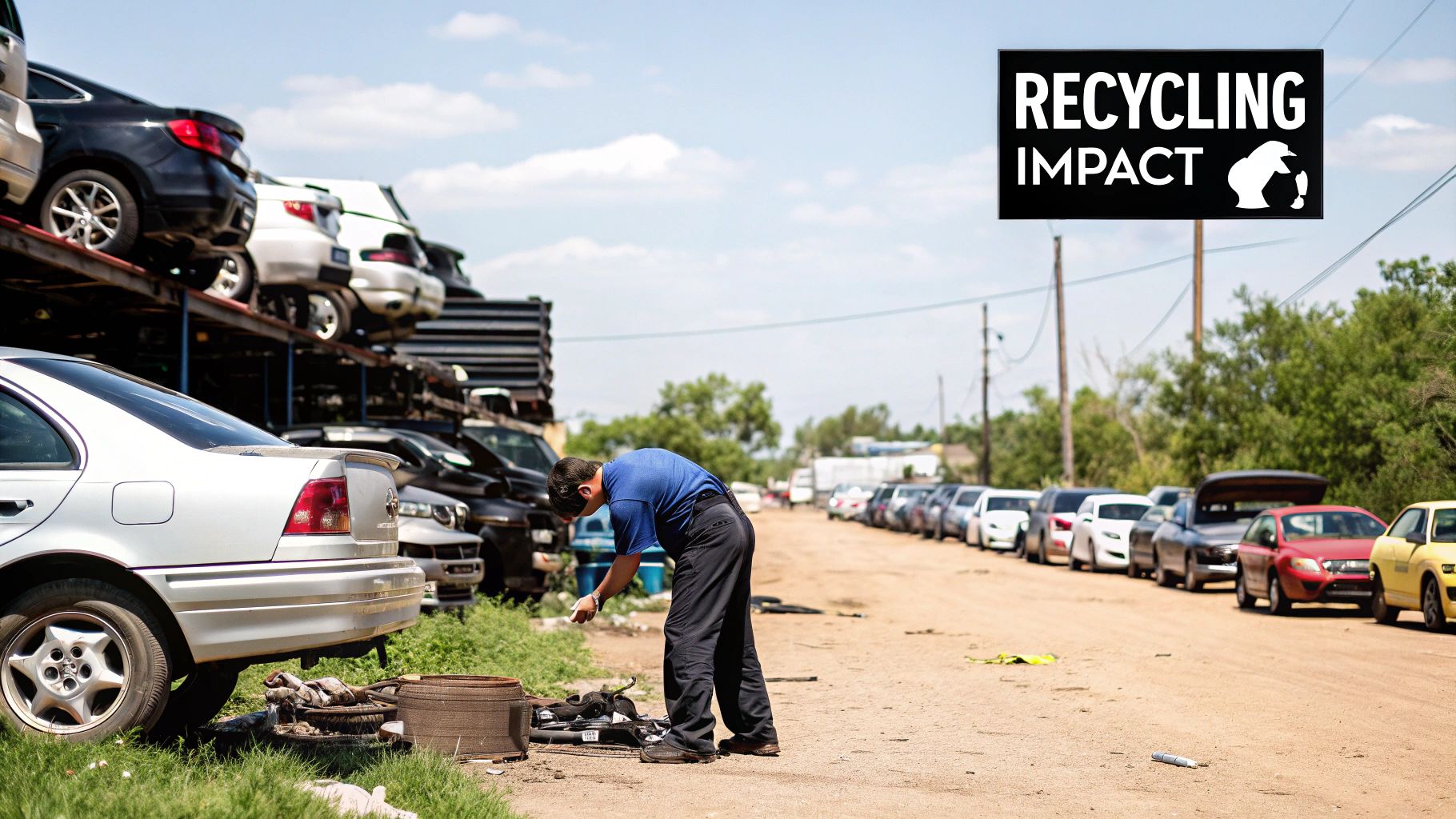
When a car has finally given up the ghost, your first move is to turn that hunk of metal into cash. The best approach is one that's both efficient and gives you confidence you're not getting ripped off. Before you even type "automotive recycling near me" into Google, take a few minutes to gather the details every single recycler is going to ask for. Trust me, this small bit of prep work makes you sound like you know what you're doing and helps you get solid, accurate quotes right away.
What to Have Ready Before You Call
Having all the necessary info ready to go saves you from endless phone tag and helps ensure the first quote you get is the real deal. You'll come across as an organised seller, which almost always leads to a smoother, faster process.
Before you dial, make sure you have these details:
- The make, model, and year of the car. This is the absolute first thing they'll ask.
- The vehicle’s current location. Be specific with the suburb or postcode, as this is essential for them to organise the free towing.
- Its overall condition. Be completely honest. Is it running? Has it been in a prang? Is the engine or transmission missing? Let them know.
- Proof of ownership. A title is perfect, but don't stress if you can't find it. Most legitimate services can proceed with just your driver's licence and a signed declaration form.
A classic mistake I see people make is being a bit too optimistic or vague about their car's condition. Being upfront from the get-go prevents a recycler from showing up and trying to knock down the price—a common tactic with less-than-reputable outfits. Honesty builds trust and locks in your quote.
Spotting a Trustworthy Operator
Look, not all car removal services operate the same way. Pinpointing a professional, licensed business right from the start is the key to a stress-free experience and avoiding the usual scams. A truly trustworthy operator will always be upfront and professional.
To help you sift through your options, I've put together a quick checklist of what to look for when choosing a recycling service.
Quick Checklist for Choosing a Recycler
| Factor | Why It Matters | What to Look For |
|---|---|---|
| Clear Licensing & Insurance | Protects you and ensures they handle waste responsibly according to environmental laws. | A registered business name (ABN) and willingness to provide their motor vehicle dealer licence number. |
| Transparent Quoting | Prevents last-minute price changes and hidden charges. | A firm quote over the phone, with confirmation that free towing is included and there are no hidden fees. |
| Professional Communication | Shows they are a serious business, not a fly-by-night operation. | Courteous staff, clear answers to your questions, and no high-pressure sales tactics. |
Ultimately, a legitimate business wants the process to be as smooth for you as it is for them. If a company gives you vague answers or makes you feel pressured, just hang up and call the next one on your list. There are plenty of great operators out there who will make it easy.
Preparing Your Car to Maximise Your Payout
So, you've found a few promising services after searching for "automotive recycling near me." Now what? A lot of people think the initial quote they get is the final word, but that’s not always the case. With a little bit of prep work before the tow truck shows up, you can actually bump up your final cash offer.
It’s not just about grabbing the forgotten sunnies from the glovebox. It’s about making your old car as appealing as possible to the recycler.
First things first, give the interior a good cleanout. I don't mean a full professional detail, just a thorough sweep for all your personal belongings and any rubbish. Don't forget to check under the seats, deep in the boot, and inside every little compartment. Trust me, the hassle of trying to retrieve a lost wallet or important documents after your car has been towed away is something you want to avoid.
Next, have a think about what you might be able to sell separately. The car's scrap value is mostly tied to its metal weight, but certain high-demand parts can fetch a much better price on their own.
Parting Out for Extra Profit
If you're a bit handy with a wrench and have some spare time, selling off valuable components before the recycler arrives is a savvy move. You’d be surprised what people are willing to pay for on marketplaces for parts that are easy to remove.
Here are a few items that are often worth selling on their own:
- GPS Units and Aftermarket Stereos: These electronics hold their value well outside of the car itself.
- Tyres and Rims: Got good tread left on your tyres? Or maybe some nice alloy wheels? These can easily be sold to individuals or a local tyre shop.
- Newer Batteries: A car battery that’s less than a year old can definitely be sold for a decent sum.
Sure, this strategy takes a bit more effort, but it can easily add an extra hundred dollars or more to your pocket. Just make sure you're upfront with the recycler about which parts you've removed when you confirm the final quote. For a deeper dive into this, you can learn more about how to scrap a car in our detailed guide, which walks you through the entire process.
Here's a common myth I hear all the time: that a car has to be completely whole to be recycled. The reality is, a recycler is mostly interested in the weight of the scrap metal. Pulling a few high-value items off for a private sale rarely makes a big dent in the base scrap price, but it puts more cash directly into your hands.
Handling Paperwork and Legalities
Getting your documents sorted is absolutely essential for a legal and hassle-free sale. Any legitimate automotive recycler will need to confirm you're the owner before they hand over any cash and take the vehicle.
The key document here is your proof of ownership—usually the car’s title or registration certificate. If you can't find it, don't panic. It happens. Most reputable recyclers can still help if you have your driver's licence and can sign a declaration of ownership, but you need to give them a heads-up about this when you first make the call.
Once the deal is done and the car is gone, you have two final, crucial tasks.
First, take the number plates off the car. You'll likely need to return these to your state's transport authority, so check their specific requirements. Second, and this is important, call your insurance company straight away to cancel your policy. You don't want to keep paying for a car you no longer own. Ticking these boxes officially severs your legal ties to the vehicle and protects you from any future issues.
Your Old Car’s Next Chapter: The Recycling Journey in Australia
Ever wondered what really happens to your car after it gets hauled away? When you look up "automotive recycling near me" and have your old vehicle collected, you’re actually starting a fascinating process. It’s not just a simple trip to a crusher; it’s a highly detailed operation that salvages valuable materials and responsibly handles hazardous waste.
By choosing a reputable car recycler, you're plugging your end-of-life vehicle (ELV) directly into the circular economy. You're ensuring it becomes a source of raw materials for new products instead of just taking up space in a landfill.
From Driveway to Depollution: A Car's Lifecycle
As soon as your vehicle hits the recycling yard, a team of specialists gets to work. They don't just flatten it. They kick off a meticulous depollution and dismantling process to recover every last bit of value.
First things first, all the fluids have to go. This is a critical step to prevent environmental contamination. Technicians will carefully drain:
- Engine oil and coolant
- Transmission and brake fluid
- Any leftover petrol or diesel
These liquids are then either recycled or disposed of according to strict safety regulations, keeping them out of our soil and waterways. After that, the focus shifts to salvaging reusable parts. Components like alternators, starter motors, and even entire engine blocks can be removed, tested, and resold if they're still in good shape. It’s a great way to reduce the need for new manufacturing, which saves a heap of energy and resources.
One of the most important jobs is safely removing and dealing with things like airbags and the mercury switches found in older cars. These are hazardous materials and need expert handling – it’s a key reason why you should always use a licensed, professional service.
Once the car has been fully depolluted and stripped of its useful parts, what’s left of the body is sent to a massive industrial shredder. This machine makes short work of the car, tearing it into fist-sized chunks of metal, plastic, and rubber. From there, powerful magnets and advanced sorting systems separate the different materials, pulling out ferrous metals like steel and non-ferrous ones like aluminium.
Finally, these recovered metals are cleaned, compacted into bales, and shipped off to smelters and foundries. There, they're melted down and given a new life as the raw materials for countless new products—including brand-new cars.
The Big Picture: Automotive Recycling in Australia
The automotive recycling industry is a major player in Australia’s waste management strategy, but there’s still work to be done. Each year, roughly 850,000 vehicles in Australia reach the end of their useful life, which generates an estimated 1.36 million tonnes of waste. While the industry successfully recovers about 70% of this material, a significant portion is still lost to landfill.
Major industry studies point to challenges like a fragmented national system and the increasing complexity of modern vehicles. If you're interested in the details, you can read the full research about these automotive recycling findings to get a deeper understanding of the national landscape.
The image below breaks down the high-level process from your point of view.
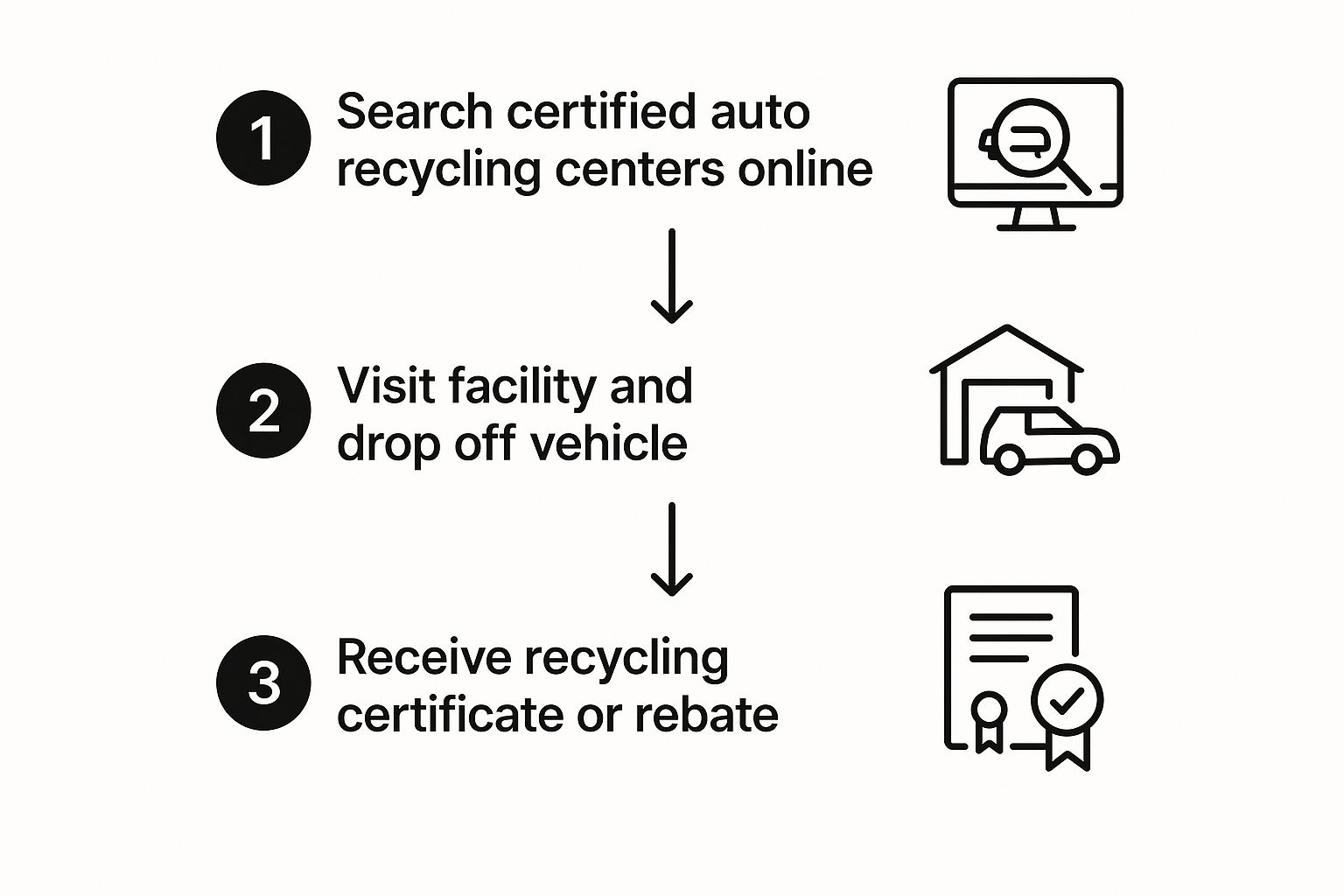
As you can see, your part in this journey is quite simple. It all starts with finding a certified local recycler and handing over your vehicle, setting it on a path to be reborn.
Securing the Best Cash Offer for Your Scrap Car
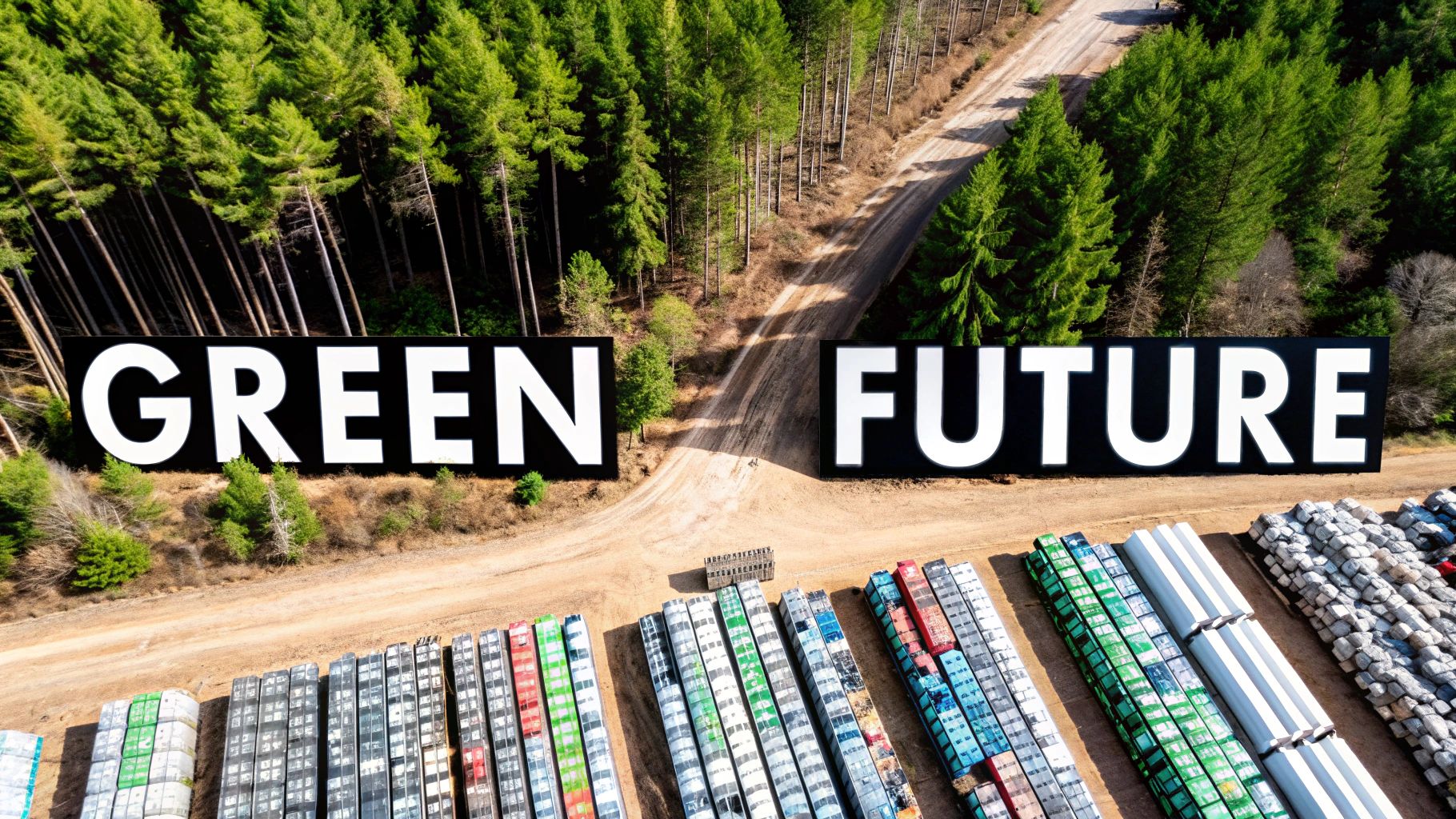
That old vehicle sitting in your driveway isn't just a hunk of metal taking up space; it's a valuable commodity. But the cash you can get for it can swing wildly from one buyer to the next, so it pays to be strategic. Getting the best price comes down to understanding what gives your car value and knowing how to talk to the recyclers.
My first piece of advice is simple: don't ever take the first offer. You need a baseline. I always recommend calling at least three different reputable services that handle automotive recycling. This gives you a clear idea of what your car is worth and some powerful negotiating leverage. When you make those calls, have the essential details ready: your car's make, model, year, and an honest description of its condition.
What Really Determines Your Car's Value
Several key factors determine the final cash offer. While some are out of your hands, knowing what they are helps you make sense of the quotes you receive. It’s not just about how the car looks on the outside; it’s about the raw materials and usable parts hiding inside.
Here’s what the buyers are really looking at:
- Vehicle Weight: This is the big one. A heavier car, like a ute or a large van, contains more scrap metal. It will almost always fetch a higher price than a small hatchback simply because there's more of it to recycle.
- Current Scrap Metal Prices: The value of steel, aluminium, and other metals changes daily based on global market demand. A professional recycler will base their offer on the current day's rates, which is why a quote might be valid for only a short time.
- Make and Model: Believe it or not, some cars have parts that are in higher demand for resale. A common, popular model might have a slightly higher value because the recycler knows they can salvage and sell more components.
- Completeness of the Vehicle: An offer is almost always based on the assumption that the car is whole. If you’ve already pulled major parts like the engine, transmission, or catalytic converter, the final price will be adjusted downwards.
A common red flag I’ve seen is a quote that sounds too good to be true, followed by some last-minute haggling when the tow truck arrives. A professional operator will give you a firm price based on your description and stick to it, as long as the car's condition matches what you said. Always confirm with them: "Is this the final amount I will be paid, with no hidden towing fees?"
Negotiating and Spotting Red Flags
Once you have a few quotes in hand, you're in the driver's seat. If your preferred company has offered a little less than a competitor, don't be shy about mentioning it. A polite, "I have another offer for $X, are you able to match that?" can often do the trick, especially if the difference is small. For more great local pointers, our guide on where to get cash for cars in Adelaide for old cars is a fantastic resource.
This informed approach is also crucial for Australia's wider sustainability efforts. With over 20.1 million registered vehicles on our roads and about 500,000 reaching the end of their life each year, efficient recycling is vital. The industry currently recycles about 75% of these old cars, but that still leaves a huge amount of material that could end up in landfill. Your choice to work with a legitimate recycler makes a real difference.
By acting as an informed seller, you not only get the best possible price but also support a more responsible and sustainable industry. It’s a win-win.
Finalising Your Car Removal and Getting Paid
You've done the legwork—you've searched for recyclers, compared your offers, and locked in a great price for your old car. Now for the final, crucial step: making sure the pickup and payment go off without a hitch. This is all about clear communication and knowing exactly what to expect on the day.
Before the tow truck is even booked, I always recommend one last phone call to the recycler. A quick chat to confirm the details can save you from any last-minute surprises. It keeps the whole process transparent and means you'll walk away with the right amount of cash and zero stress.
Pre-Removal Confirmation Checklist
Think of this as your final pre-flight check. It’s a simple, professional step that any good business will appreciate, and it ensures everyone is on the same page.
Here’s what I’d confirm on that call:
- The Pickup Window: Don't settle for a vague "sometime on Tuesday." Ask for a specific timeframe, like "between 1 PM and 3 PM". This shows you value your time and lets you plan your day.
- The Payment Method: Double-check how they'll be paying you. Is it cash, a bank transfer, or a cheque? Cash on the spot is the standard for most reputable services, and frankly, it’s what you should expect.
- The Required Paperwork: Remind them what you have ready (e.g., "Just confirming, I've got the title and my licence here for you"). Then ask what paperwork they will provide. You're looking for a receipt or a notice of disposal.
Getting a Notice of Disposal or a similar receipt is non-negotiable. This piece of paper is your official proof that you've legally handed over the vehicle. It's what protects you from any future liability, like random fines or towing fees that could pop up down the track.
What to Expect on Removal Day
When removal day rolls around, the process should be straightforward and professional. The tow truck driver ought to arrive within your agreed-upon window.
First, they’ll do a quick walk-around of the vehicle. This isn't an in-depth inspection; they're just verifying that the car is in the condition you described over the phone.
Next, you'll sort out the final paperwork. This usually just means signing over the title or filling out a declaration of ownership form they provide. Once that’s done, they should pay you the agreed amount. It's absolutely crucial that you receive payment before they even think about hooking the car up.
Once you have the money in hand, you can confidently pass over the keys and watch them haul your old car away. Following these steps is the key to getting cash for scrap cars without any of the headaches.
Common Questions About Automotive Recycling
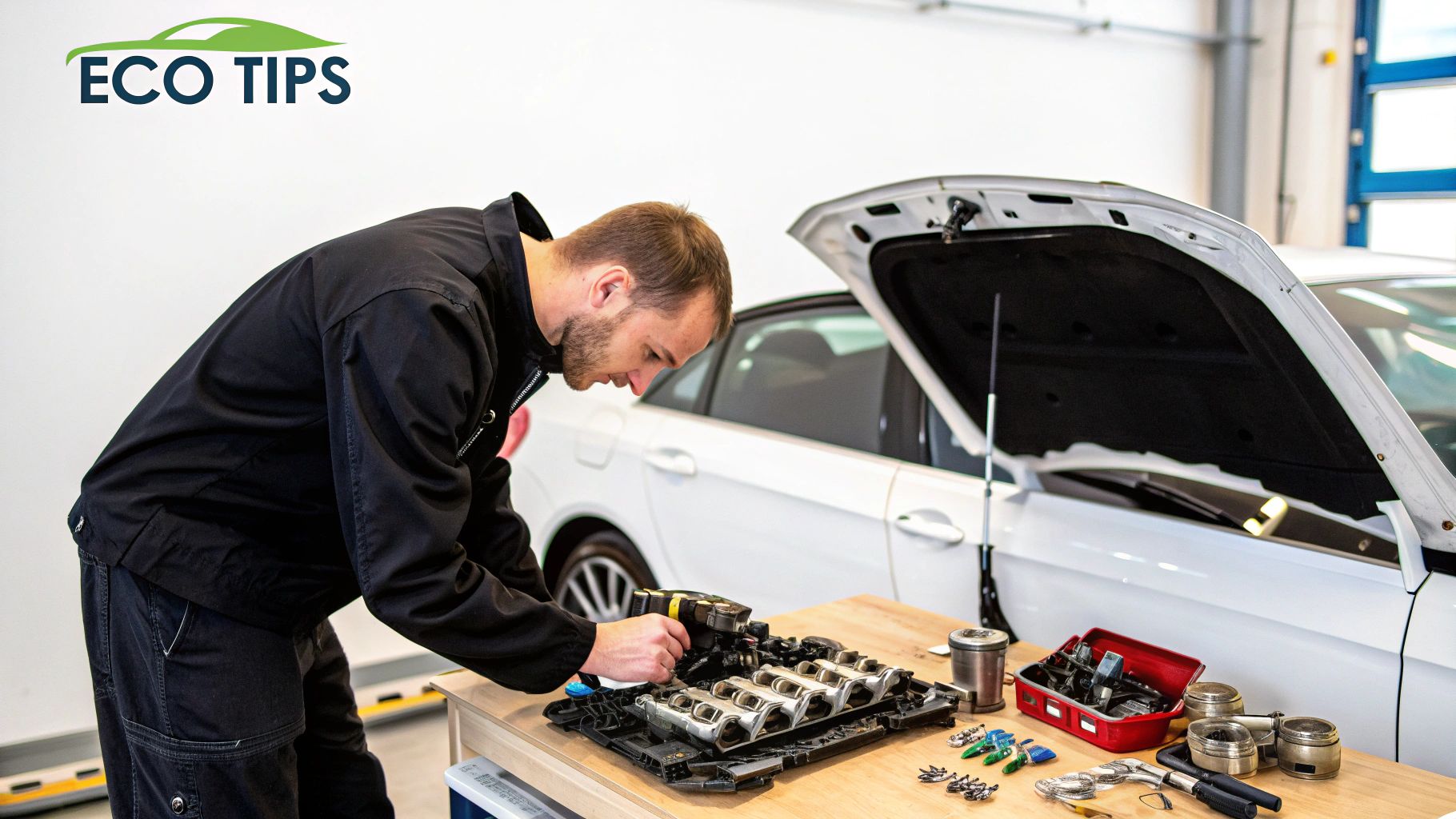
Even when you’re certain it’s time to say goodbye to an old car, it’s completely normal to have some last-minute questions. The whole world of automotive recycling can seem a bit complicated from the outside, but I can tell you from experience that it's usually much simpler than you think.
To help you feel confident about the next steps, I've put together answers to the most common questions we hear from people every day. We'll cover the practical things, from lost paperwork to cars that don't even start.
What If I Cannot Find My Car's Title or Ownership Papers?
Don't panic—this is one of the most frequent hurdles people face, and there are well-established workarounds. Any reputable Australian auto recycler has dealt with this countless times and can almost always still buy your vehicle.
You'll definitely need to show your driver's licence to prove your identity. The recycler will also ask you to sign a legal declaration stating you're the rightful owner with the authority to scrap the car. This gives them the green light to check the Vehicle Identification Number (VIN) and verify it isn't stolen or still under finance.
The key is to be upfront about missing paperwork right from the first phone call. A professional outfit will walk you through their process, making sure everything is handled legally and without any fuss.
Does My Car Need to Be Running to Be Recycled?
Absolutely not. In fact, the vast majority of vehicles we see at recycling facilities are non-runners. They're often there because of a major accident, a blown engine, or simply because they've reached the end of their useful life.
The cash value of a scrap car really boils down to two things:
- Its total weight in scrap metal.
- The value of any parts that can still be salvaged and sold.
Whether the engine turns over has no bearing on those factors. Any legitimate 'cash for cars' service will operate its own fleet of tow trucks specifically designed to pick up non-functional vehicles, and this should always be included in the service.
How Much Cash Can I Realistically Expect for My Scrap Car?
This is the big question, isn't it? The truth is, the payout can vary quite a bit. The final offer depends on several things: the car's size and weight, its make and model, and of course, the current market price for scrap metal, which can change daily.
For example, a small hatchback simply has less metal than a large commercial van, so it will naturally be worth less. As a general guide, you might see offers from under $100 for a stripped-down shell to over $1,000 for a complete, heavy vehicle. The only way to know for sure is to get a few competing quotes from different local services when you search for "automotive recycling near me".
Are There Any Hidden Costs Like Towing Fees?
With any established, professional car removal service in Australia, the answer should be a firm no. Free towing is a standard, non-negotiable part of the deal offered by any legitimate automotive recycler.
That said, you should always double-check this when getting a quote. Ask them point-blank, "Is your offer all-inclusive, with no hidden towing fees?" A trustworthy company will give you a clear, final price, so the amount they quote is the exact amount of cash you’ll get when they pick up the car.
Ready to turn your old car into instant cash? The team at Auto Removal Adelaide offers top-dollar payouts and free, hassle-free removal across Adelaide. Get your free, no-obligation quote today at https://autoremovaladelaide.com.au.

